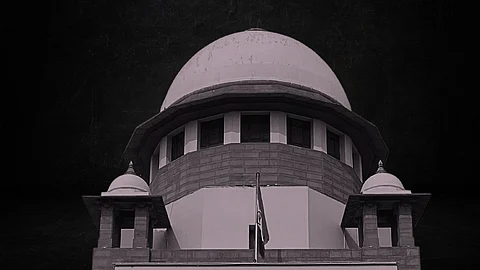

ONE OF THE LANDMARK JUDGEMENTSdelivered by the Supreme Court in recent times has escaped the attention it deserves from the police forces across the country. The top Court's decision in Tushar Rajnikantbhai Shah v. Kamal Dayani & Others (2024) is not merely an adjudication—it is a reaffirmation. It reasserts the sanctity of judicial orders and calls forth a renewal of procedural discipline within our institutions. In acknowledging both the culpability and constraints of those involved, the Court reminds us that accountability and empathy are not adversaries, but cohabitants of justice.
A tale of contempt and allegations of custodial torture
The petitioner, Tusharbhai Shah, was named in an FIR arising from a property dispute. He was alleged to have received ₹1.65 crores in cash for the sale of fifteen shops but failed to deliver possession. After lower courts denied his plea for anticipatory bail, Shah approached the Supreme Court. On December 8, 2023, the top Court granted him interim anticipatory bail, thereby protecting him from arrest.
Despite presenting the Supreme Court's bail order, Shah was remanded to four days of police custody on December 13 by the 6th Additional Chief Judicial Magistrate (‘ACJM’), Surat. This remand was based on a police application citing non-cooperation. Upon being produced before the court again, Shah alleged custodial torture by the Deputy Commissioner of Police and the Police Inspector. The ACJM ignored these claims.
Immediately following his release, Shah filed an application before the Commissioner of Police, requesting preservation of CCTV footage at the police station—as mandated by the Supreme Court in Paramvir Singh Saini v. Baljit Singh (2020). This request was also disregarded.
Shah subsequently filed a contempt petition against the Commissioner of Police (Respondent No.2), the Deputy Commissioner of Police ((Respondent No.3), the Police Inspector (Respondent No.4), and the ACJM (Respondent No.7), alleging deliberate disobedience of the Supreme Court’s order. He further claimed custodial torture and delayed release in defiance of the Court’s protection.
Magistrates actions biased and high-handed: Supreme Court
In her affidavit before the Court, the ACJM attempted to justify her remand order by citing prevailing practice in Gujarat, rooted in the 2014 Gujarat High Court judgment in Sunilbhai Kothari (2014). The Supreme Court categorically rejected her submission, declaring it neither convincing nor tenable. It emphasized that this was not a case involving vague or interpretative anticipatory bail under Section 438 of the Code of Criminal Procedure, 1973 (‘CrPC’). Rather, the Supreme Court’s order of December 8, 2023, issued under Article 136 of the Constitution, was clear and unambiguous.
While the Court found the magistrate’s actions biased and high-handed, it held the Police Inspector’s conduct to be in flagrant defiance and gross contempt of its order. Reaffirming its consistent prioritisation of individual liberty, the top Court noted that the magistrate had improperly dismissed Shah’s complaint of custodial violence without following procedure under Sections 200 and 202 of the CrPC—a dismissal later overturned by the High Court.
It was also noted that Senior Advocate Iqbal Syed, who appeared during the hearing in which interim protection was granted, strongly objected to the police's remand
application before the ACJM. On August 7, 2024, the Court found both the Police Inspector and the Judicial Magistrate guilty of contempt. However, their unconditional apologies were accepted, and the petition was disposed of with leniency. There was only a firm caution against repetition of such conduct.
Most significantly, the Supreme Court deprecated the Gujarat practice—borne out of the aforementioned High Court judgment—of granting blanket permission to investigating officers to seek police custody even after anticipatory bail has been granted. The Court declared this approach contrary to the law laid down in its landmark 2020 judgment in the Sushila Aggarwal.
Firmly discouraging misuse of criminal proceedings to settle civil disputes
The judgment echoes beyond mere legal rectification—it firmly discourages the misuse of criminal proceedings to settle civil disputes. It urges us to ask: When procedural shortcuts become institutional habits, who pays the price? It is really the citizen, caught between orders and overreach, the officer inadequately trained, but held responsible, the Magistrate, pressured by precedent and speed.
The Supreme Court's insistence on dignity in process—and compassion in response—is timely and timeless.
In jurisprudence, the line between procedural lapse and contempt is not always drawn by malice—it is often blurred by habit, hierarchy, and haste. The Supreme Court’s rebuke of remand practices in Gujarat, despite anticipatory bail, reveals how legal culture may drift from constitutional moorings through seemingly routine actions. That the Court tempered its verdict with grace, avoiding harsh language and accepting apologies, reveals an evolving ethos: one that disciplines without diminishing. Law, after all, is not just a hammer—it is a compass.